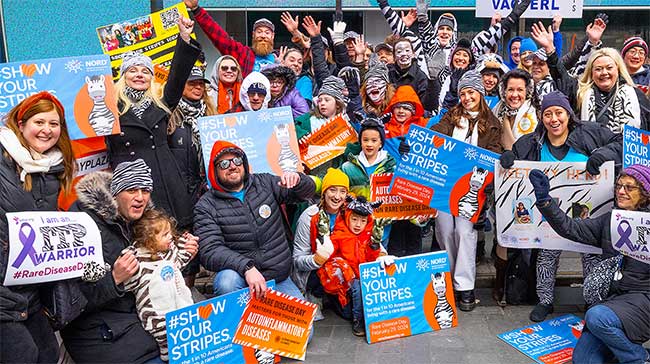Today, Nebraska’s Medicaid expansion begins to take effect. This milestone—two years in the making—means that thousands more low-income people, including many who have a rare disease, now have access to health care coverage.
Nebraska is the latest in the long line of successful ballot initiatives to expand Medicaid. Since the passage of the Affordable Care Act, states have had the option to expand Medicaid eligibility to all adults with incomes below 138% of the federal poverty line ($29,974 for a family of three and $17,236 for an individual in 2020). To date, 39 states and Washington, DC have expanded their Medicaid programs—many due to voters demanding to be heard on this important health care issue.
Medicaid expansion helps to close what is known as the coverage gap, when people earn too much money to qualify for Medicaid, yet not enough to afford private insurance. In states that have not expanded, on average, a family of three in 2019 must have earned less than $8,532 to qualify for Medicaid – but federal insurance subsidies through the Affordable Care Act marketplace did not begin until 100% of the federal poverty line ($21,720). An adult without children may have no coverage support options available to them at all.
The National Organization for Rare Disorders (NORD) advocates for Medicaid expansion to ensure that all rare disease patients can access quality, affordable health care coverage regardless of their income. Most recently, we spent the summer working alongside other patient advocacy groups to help successfully pass Medicaid expansion in Oklahoma (on June 30) and Missouri (on August 4). These efforts are expected to expand health coverage to more than 230,000 currently uninsured Missourians and 200,000 currently uninsured Oklahomans. (Find state-by-state information about Medicaid expansion and other key policy issues affecting rare disease patients on NORD’s Rare Action Network website.)
The benefits of Medicaid expansion highlight many of the burdens that come with having a rare disease, which affect more than 25 million Americans—nearly 10% of the population. Many people with rare diseases have complex and costly needs for care and may also struggle to work due to their medical condition. According to NORD’s recent Barriers and Facilitators to Rare Disease Diagnosis, Care and Treatment: 30-year Follow-up survey, 76% of rare disease patients report some or great financial burden and 62% of adults have had to miss work as a result of their rare disease.
Notably, these responses were collected before the coronavirus pandemic, which has created many new hardships. NORD’s COVID-19 Community Surveys found that 27% of households have experienced job loss, 9% of whom have also lost health insurance, because of COVID-19.
When a state expands Medicaid, low-income people with a rare disease gain access to primary and preventive care, including cancer and rare disease screening, routine doctor visits, in-home therapies including speech/occupational therapies, prescription drugs, and other treatments and services that patients need to maintain their health. Research suggests that Medicaid expansion results in significant reductions in out-of-pocket medical spending; fewer people struggling to pay their medical bills; reduced medical debt; the reduced likelihood that someone will go without necessary health care because of costs; helps to keep rural hospitals open, ensuring that rural patients do not have to travel enormous distances to see their doctor or in an emergency; and generates more money for states than their programs cost.
During the pandemic, Medicaid enrollment has increased by 8.4%. In response, as part of the Families First Coronavirus Response Act, the federal government is contributing a 6.2% federal funding increase to state Medicaid programs. NORD has advocated for that number to be even higher, as we foresee painful Medicaid cuts looming due to the economic effects of COVID-19. As of this week, House Democrats have put forward another COVID relief package that increases federal Medicaid funding by 14% through September 2021.
As Nebraskans with rare diseases enter this new era of improved access to health care, their progress highlights our need for continued advocacy to support Medicaid across the country. Now, more than ever, rare disease patients need access to safe and affordable health care for both routine and COVID-19 related treatments.
Your voice can help make a difference on this issue. Sign up to receive Rare Action Network updates to learn more on and join NORD’s policy efforts at the state and federal levels.



